An AI chatbot for ethics developed by the Allen Institute for AI has some interesting responses, to say the least.


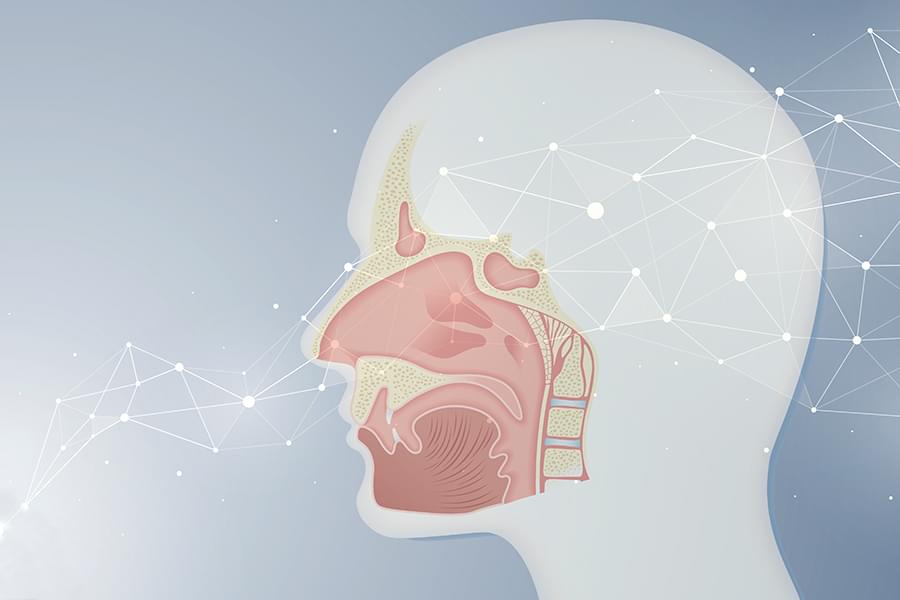
Using machine learning, a computer model can teach itself to smell in just a few minutes. When it does, researchers have found, it builds a neural network that closely mimics the olfactory circuits that animal brains use to process odors.
Animals from fruit flies to humans all use essentially the same strategy to process olfactory information in the brain. But neuroscientists who trained an artificial neural network to take on a simple odor classification task were surprised to see it replicate biology’s strategy so faithfully.
Full Story:
When asked to classify odors, artificial neural networks adopt a structure that closely resembles that of the brain’s olfactory circuitry.
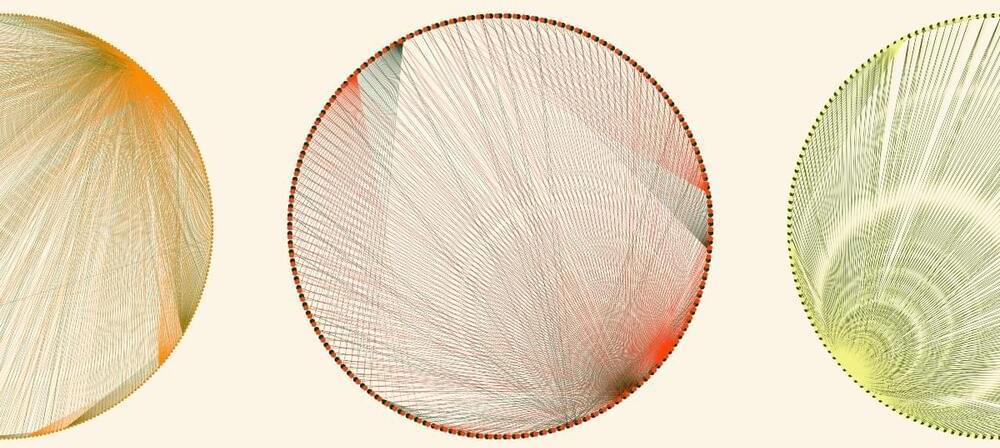
In this post I outline my journey creating a dynamic NFT on the Ethereum blockchain with IPFS and discuss the possible use cases for scientific data. I do not cover algorithmic generation of static images (you should read Albert Sanchez Lafuente’s neat step-by-step for that) but instead demonstrate how I used Cytoscape.js, Anime.js and genomic feature data to dynamically generate visualizations/art at run time when NFTs are viewed from a browser. I will also not be providing an overview of Blockchain but I highly recommend reading Yifei Huang’s recent post: Why every data scientist should pay attention to crypto.
W h ile stuck home during the pandemic, I’m one of the 10 million that tried my hand at gardening on our little apartment balcony in Brooklyn. The Japanese cucumbers were a hit with our neighbors and the tomatoes were a hit with the squirrels but it was the peppers I enjoyed watching grow the most. This is what set the objective for my first NFT: create a depiction of a pepper that ripens over time.
How much of the depiction is visualization and how much is art? Well that’s in the eye of the beholder. When you spend your days scrutinizing data points, worshiping best practices and optimizing everything from memory usage to lunch orders it’s nice to take some artistic license and make something just because you like it, which is exactly what I’ve done here. The depiction is authentically generated from genomic data features but obviously this should not be viewed as any kind of serious biological analysis.
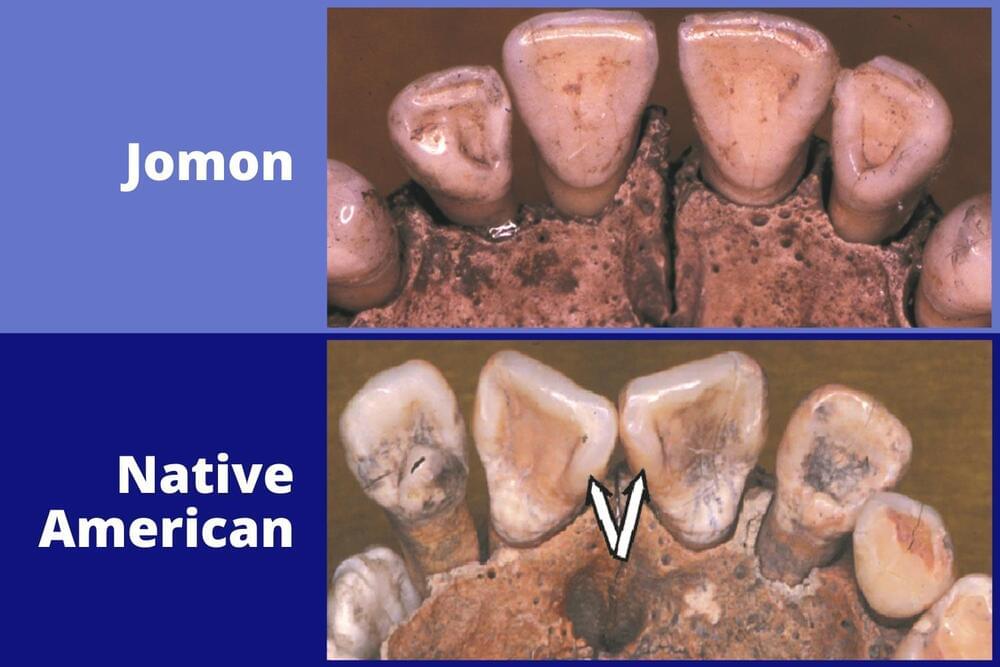
Latest scientific findings suggest the ancestral Native American population does not originate in Japan, as believed by many archaeologists.
A widely accepted theory of Native American origins coming from Japan has been attacked in a new scientific study, which shows that the genetics and skeletal biology “simply does not match-up.”
The findings, published on October 12 2021, in the peer-reviewed journal PaleoAmerica, are likely to have a major impact on how we understand Indigenous Americans’ arrival to the Western Hemisphere.

In 2009—four years after it was published—I read Ray Kurzweil’s The Singularity Is Near. It is an optimistic view of the future—a future that depends on computational technology. A future of superintelligent machines. It is also a future where humans will transcend our present biological limits.
I had to read the book twice—once for the sense and once for the detail.
After that, just for my own interest, year-in, year-out, I started to track this future; that meant a weekly read through New Scientist, Wired, the excellent technology pieces in the New York Times and the Atlantic, as well as following the money via the Economist and Financial Times. I picked up any new science and tech books that came out, but it wasn’t enough for me. I felt I wasn’t seeing the bigger picture.
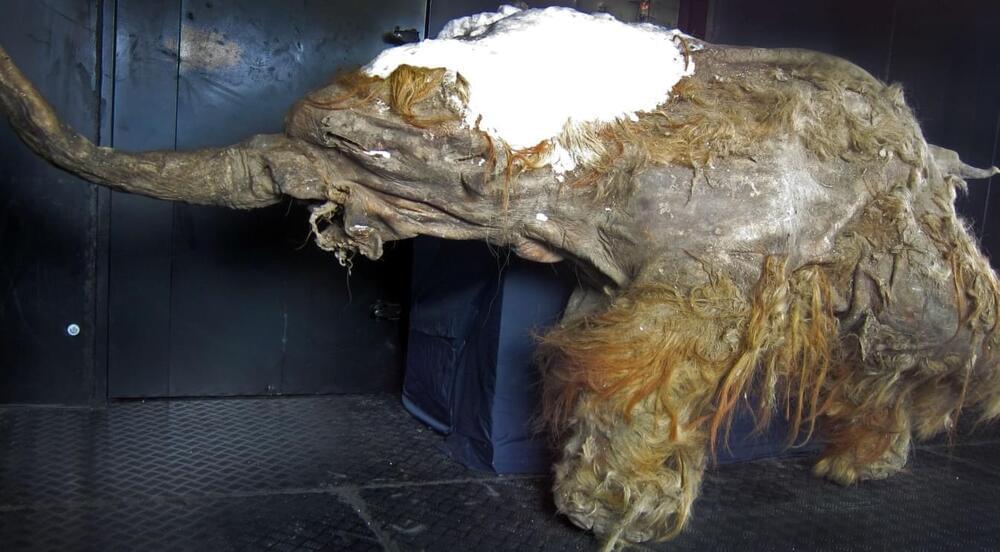
Circa 2019 o.o
The dream of resurrecting species like the woolly mammoth via genetic engineering is old enough that I remember reading articles about it in school 30 years ago. We may never be able to recover enough pristine genetic material from an intact woolly mammoth to make that approach feasible, but scientists working on the remains of the frozen mammoth known as Yuka have taken an incredible step nonetheless, demonstrating that at least some cell functions can remain intact after nearly 30,000 years.
Yuka, found in 2,010 is a juvenile woolly mammoth, considered to be the most intact and well-preserved mammoth ever found. That was critical to the researchers’ efforts — earlier tests in 2009 with a less-well-preserved but younger specimen at 15,000 years old yielded no positive results at all.
To be clear: The scientists in question were not able to bring Yuka’s cells back to life. After removing 88 nucleus-like structures from Yuka’s cells, they injected these structures into mouse oocytes — eggs — to see if they could be coaxed back into biological activity. While the cells ultimately failed to divide, they did undertake some of the steps required for cell division, such as spindle assembly. This spindle assembly process ensures that chromosomes are properly prepared to divide before the parent cell actually splits.
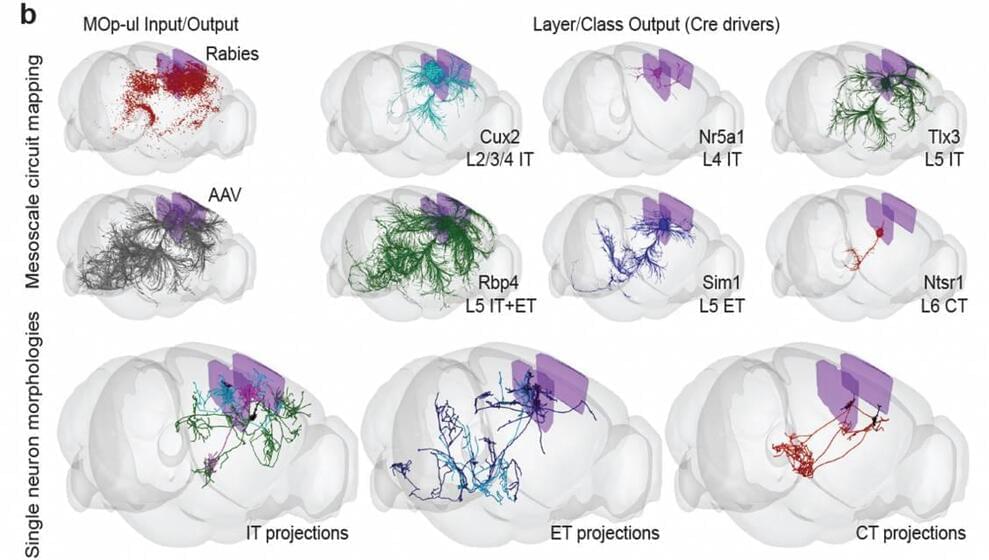
A slew of new studies now shows that the area of the brain responsible for initiating this action — the primary motor cortex, which controls movement — has as many as 116 different types of cells that work together to make this happen.
The 17 studies, appearing online Oct. 6 in the journal Nature, are the result of five years of work by a huge consortium of researchers supported by the National Institutes of Health’s Brain Research Through Advancing Innovative Neurotechnologies (BRAIN) Initiative to identify the myriad of different cell types in one portion of the brain. It is the first step in a long-term project to generate an atlas of the entire brain to help understand how the neural networks in our head control our body and mind and how they are disrupted in cases of mental and physical problems.
“If you think of the brain as an extremely complex machine, how could we understand it without first breaking it down and knowing the parts?” asked cellular neuroscientist Helen Bateup, a University of California, Berkeley, associate professor of molecular and cell biology and co-author of the flagship paper that synthesizes the results of the other papers. “The first page of any manual of how the brain works should read: Here are all the cellular components, this is how many of them there are, here is where they are located and who they connect to.”
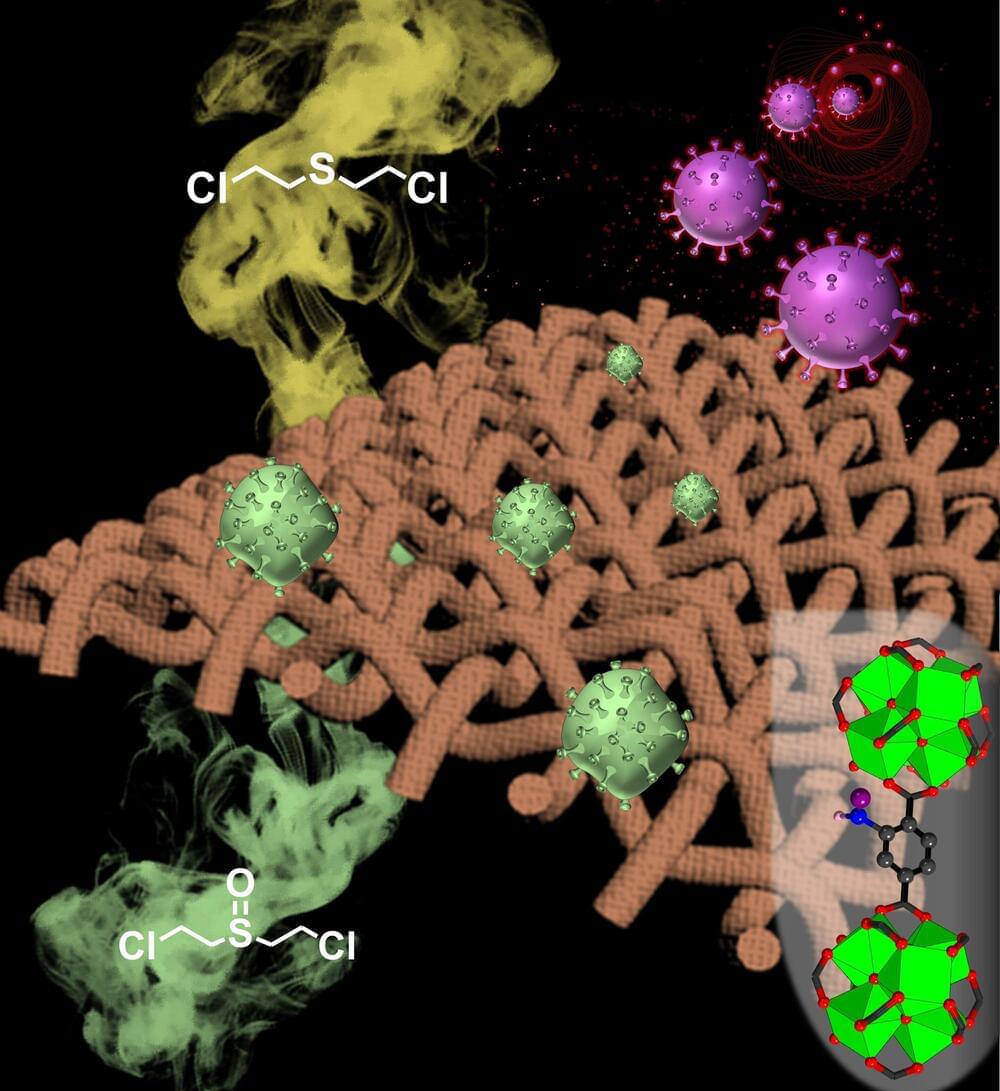
A Northwestern University research team has developed a versatile composite fabric that can deactivate both biological threats, such as the novel coronavirus that causes COVID-19, and chemical threats, such as those used in chemical warfare. A material that is effective against both classes of threats is rare.
The material also is reusable. It can be restored to its original state after the fabric has been exposed to threats by a simple bleach treatment. The promising fabric could be used in face masks and other protective clothing.
“Having a bifunctional material that has the ability to deactivate both chemical and biological toxic agents is crucial since the complexity to integrate multiple materials to do the job is high,” said Northwestern’s Omar Farha, an expert in metal-organic frameworks, or MOFs, which is the basis for the technology.

Researchers at Heidelberg University and University of Bern have recently devised a technique to achieve fast and energy-efficient computing using spiking neuromorphic substrates. This strategy, introduced in a paper published in Nature Machine Intelligence, is a rigorous adaptation of a time-to-first-spike (TTFS) coding scheme, together with a corresponding learning rule implemented on certain networks of artificial neurons. TTFS is a time-coding approach, in which the activity of neurons is inversely proportional to their firing delay.
“A few years ago, I started my Master’s thesis in the Electronic Vision(s) group in Heidelberg,” Julian Goeltz, one of the leading researchers working on the study, told TechXplore. “The neuromorphic BrainScaleS system developed there promised to be an intriguing substrate for brain-like computation, given how its neuron and synapse circuits mimic the dynamics of neurons and synapses in the brain.”
When Goeltz started studying in Heidelberg, deep-learning models for spiking networks were still relatively unexplored and existing approaches did not use spike-based communication between neurons very effectively. In 2,017 Hesham Mostafa, a researcher at University of California—San Diego, introduced the idea that the timing of individual neuronal spikes could be used for information processing. However, the neuronal dynamics he outlined in his paper were still quite different from biological ones and thus were not applicable to brain-inspired neuromorphic hardware.
Driving this revolution has been a new breed and wave of founders and startups that merge the worlds of technology and bio — importantly, not just the old world of biotech (or a narrow definition of tech in bio as only “digital health”), but something much broader, bigger, and blending both worlds. In short, biology — enabled by technology — is eating the world. This has not only changed how we diagnose, treat, and manage disease, but has been changing the way we access, pay for, and deliver care in the healthcare system. It is now entering into manufacturing, food, and several other industries as well. Bio is becoming a part of everything.
This new era of industrialized bio — enabled by AI as well as an ongoing, foundational shift in biology from empirical science to more engineered approaches — will be the next industrial revolution in human history. And propelling it forward is an enormous new driving force, the novel coronavirus SARS-CoV-2, its ever-evolving strains, and the resulting COVID-19 disease pandemic and response — which I believe is analogous to our generation’s World War II (WW2). In other words: a massive global upheaval, but that later led to unprecedented innovation and significant new players.
As a result, we will now see the emergence of bio’s version of GAFA — playing off the “Google Amazon Facebook Apple” of the leading companies in computing, social, mobile — but for bio. And with it, a post-WW2/ post-Covid “Industrial Bio Complex”.